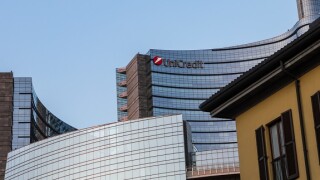Top Section/Ad
Top Section/Ad
Most recent
Syndicate and trading executives get wider responsibilities
More articles/Ad
More articles/Ad
More articles
-
Firms can spend vast amounts of time window-dressing their balance sheets to look the best they possibly can within the limits of reporting regulations. Within those limits, everything goes.
-
Credit Suisse took a $294m hit from marking leveraged finance underwriting exposure to market in the first quarter, its results on Thursday showed, as March’s volatility and jump in credit spreads took their toll.
-
Svenska Handelsbanken and Swedbank looked to be as transparent as possible when laying out their assumptions for loan losses this week, as part of an effort to reassure the market about their resilience in the face of the coronavirus crisis.
-
The European Central Bank’s purchase programme will do little to aid agencies in raising cash in the commercial paper market, making little difference to rising borrowing costs and expanding programmes, according to Jérôme Margerin, head of short-term funding at ACOSS, one of Europe’s largest non-sovereign CP issuers.
-
Analysts have praised UniCredit for taking a conservative approach to dealing with the coronavirus pandemic, after the Italian bank said on Wednesday that it would be making higher loan losses provisions in the first quarter than had been expected by the market.
-
Supervisors are encouraging financial institutions to use all of their capital and liquidity buffers as necessary during the coronavirus crisis, signalling that lenders will be given a "significant" amount of time to restore their regulatory ratios to adequate levels.











